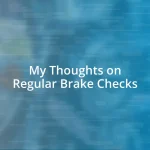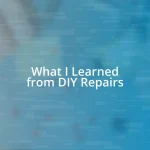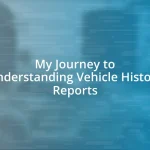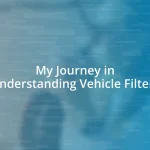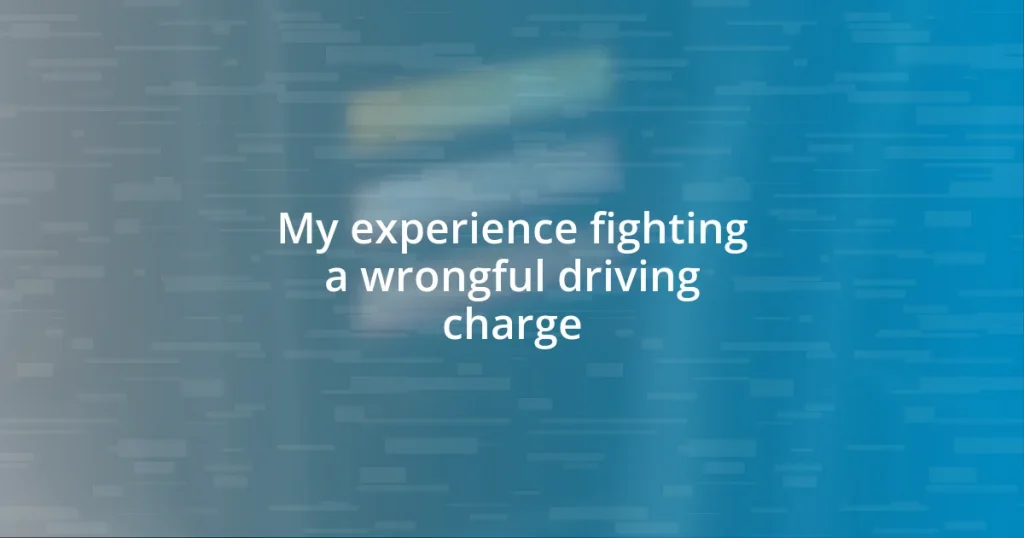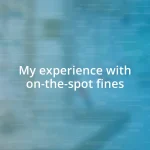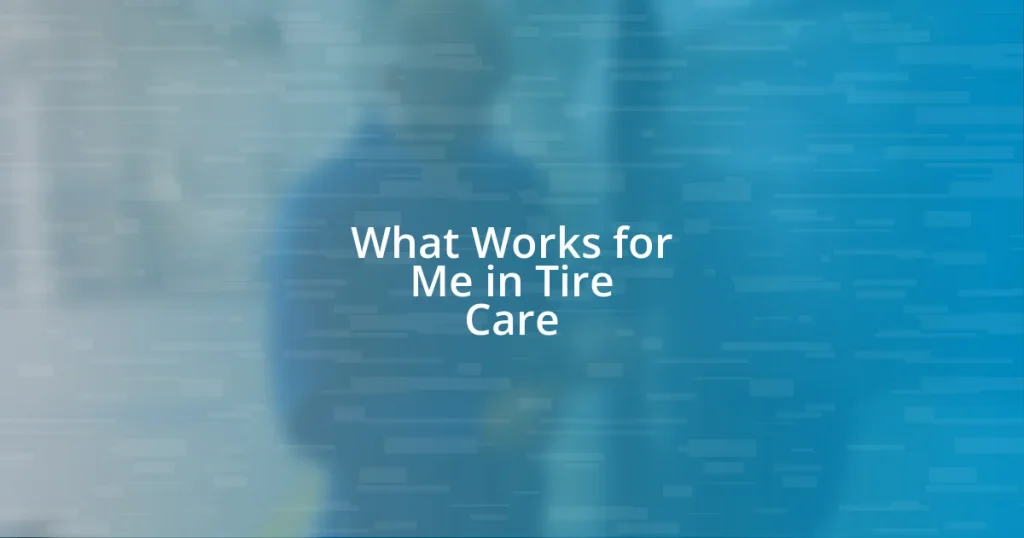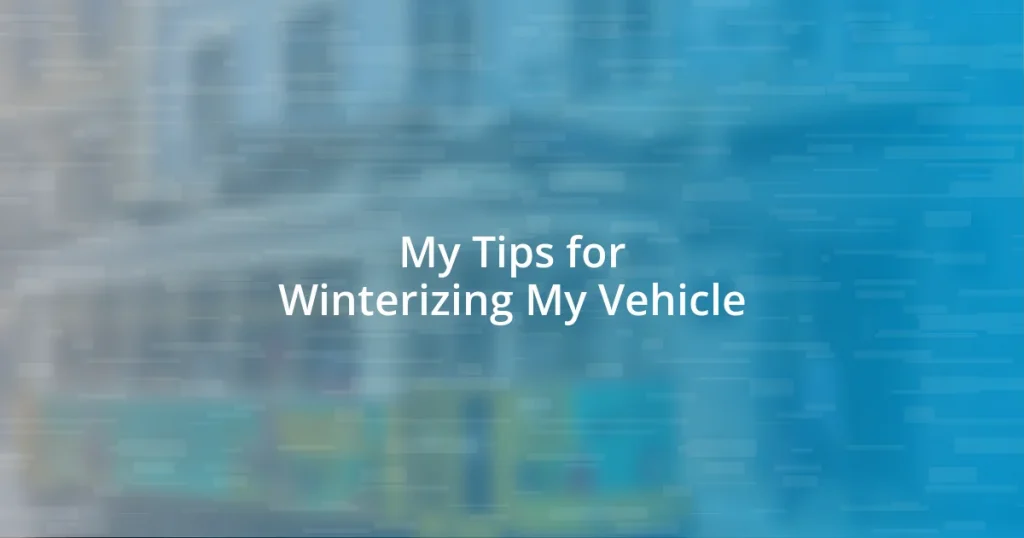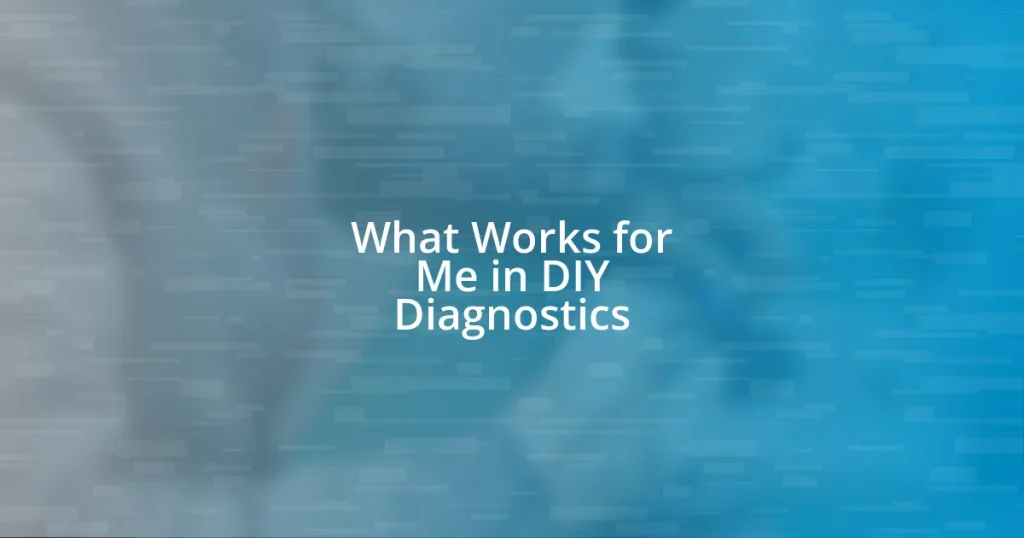Key takeaways:
- Gathering detailed evidence, including witness statements and dashcam footage, significantly strengthened the defense against wrongful driving charges.
- Consulting with experienced legal professionals provided crucial support and clarity in navigating the legal process.
- Resilience, building a support network, and staying organized were essential in overcoming challenges during the journey of fighting the charges.
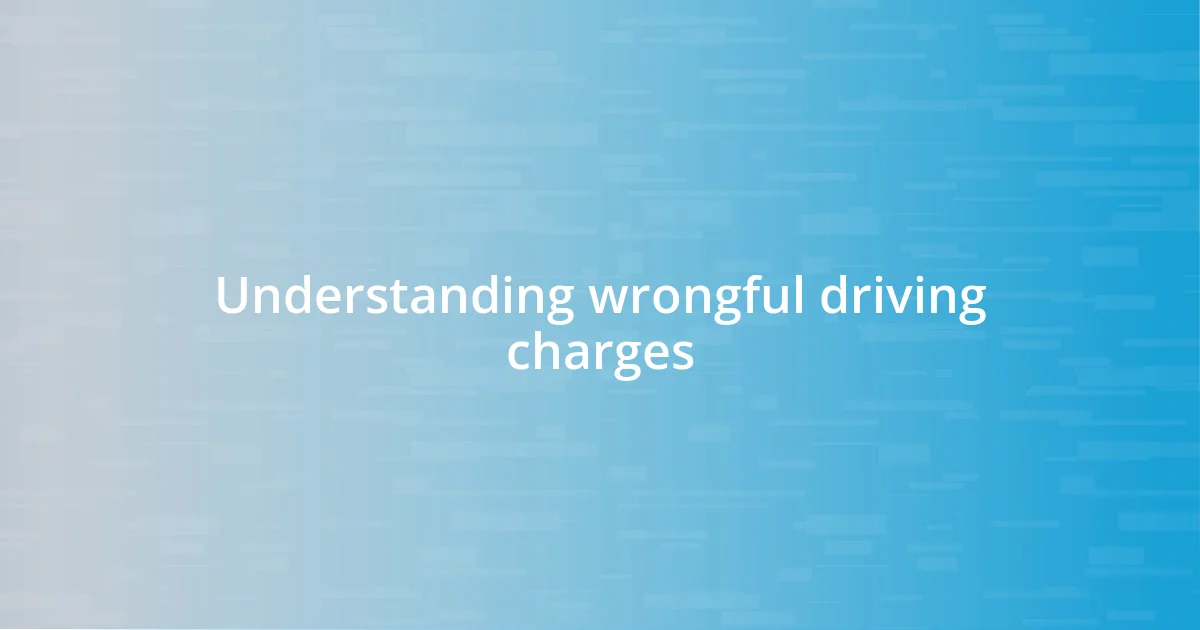
Understanding wrongful driving charges
Wrongful driving charges can stem from misunderstandings or inaccuracies during traffic stops. I remember the anxiety I felt when I was pulled over, thinking, “How could this happen to me?” It’s easy to feel overwhelmed by the system, especially when you know you didn’t commit the violation you’re being accused of.
The legal consequences of wrongful charges can be severe, impacting your driving record and insurance rates. It’s frustrating to face this, as I found myself trying to explain my case to friends and family who couldn’t understand how miscommunication could lead to such serious allegations. Have you ever felt the weight of an unfair accusation? It truly changes how you view the justice system.
In many cases, wrongful charges arise from the officer’s subjective judgement or misinterpretation of the law. I once spoke to a friend who faced a similar issue, where a simple mistake resulted in a fine and a court appearance. How often do we think about how a moment of human error can derail someone’s day—or even their life? Understanding these nuances can make the difference between feeling defeated and empowered to fight for your rights.
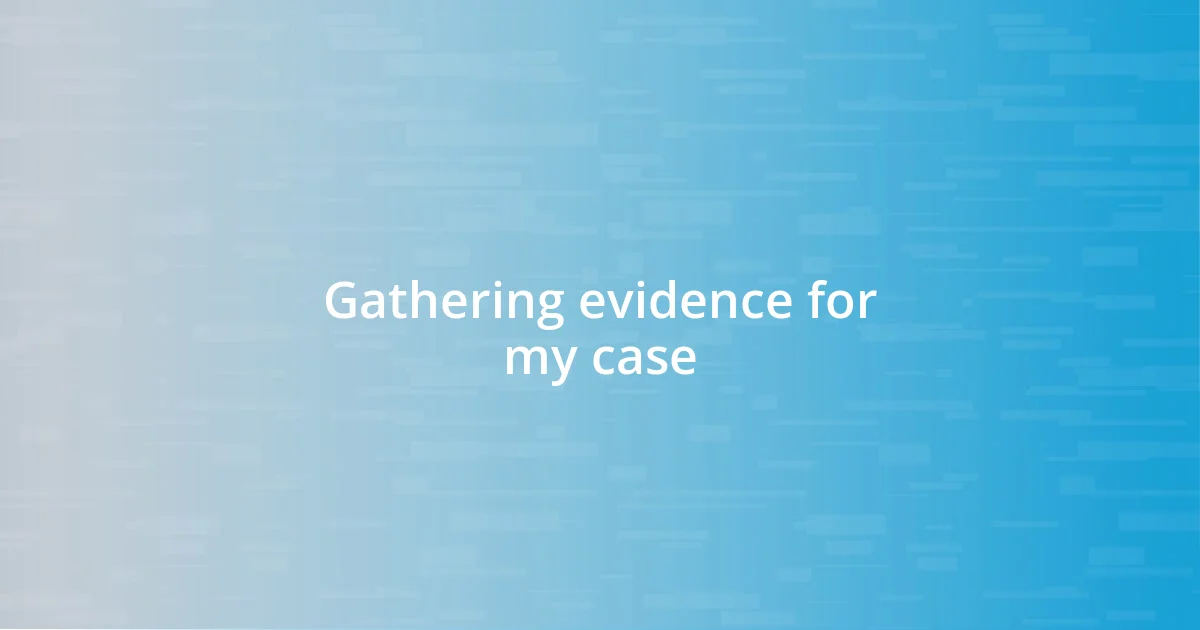
Gathering evidence for my case
Gathering evidence became a critical task for me as I navigated the complexities of my wrongful driving charge. I learned early on that the more detailed my evidence, the stronger my case would be. I vividly remember retracing my steps and documenting everything that happened during the traffic stop, including the exact location, time, and what I observed. The act of writing it down not only clarified my thoughts but also helped me organize my defense effectively.
As I compiled my evidence, I focused on collecting witness statements. I reached out to friends who were with me that day, and their accounts provided valuable support for my claims. Plus, I even tapped into social media; posting about the incident led to unexpected connections with others who had witnessed the same situation. It was a reminder of how building a network can sometimes turn the tide in our favor.
Visual evidence also played a significant role. I got my hands on dashcam footage from a nearby vehicle after connecting with the driver. This footage ultimately helped shed light on what really happened. Have you ever felt like a simple piece of evidence could be the key to unlocking the truth in a difficult situation? I certainly did, and it transformed my approach to collecting what I needed for my case.
| Type of Evidence | Description |
|---|---|
| Witness Statements | Accounts from friends or other individuals present during the incident |
| Dashcam Footage | Video evidence from a vehicle that recorded the traffic stop |
| Personal Notes | Chronological documentation of events and observations |
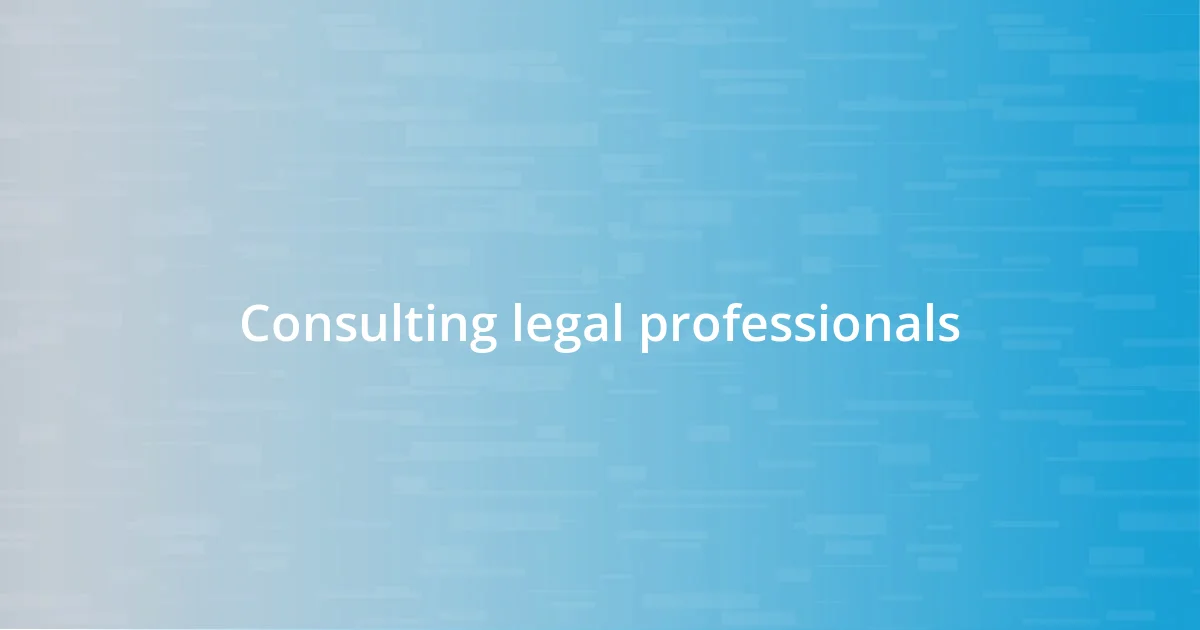
Consulting legal professionals
I quickly realized that consulting legal professionals was an essential step in my journey to fight the wrongful driving charge. At first, the thought of navigating the legal landscape felt daunting, but then I recognized how much support and knowledge a good attorney could provide. I remember sitting across from my lawyer, feeling a mix of anxiety and hope as they explained my options. Their experience brought clarity and reassurance—it was comforting to know I was not alone in this battle.
When seeking legal advice, it’s important to consider a few key factors:
– Experience: Choose a lawyer who specializes in traffic violations to ensure they understand the nuances of the law.
– Reputation: Look for reviews or testimonials from past clients to gauge their effectiveness.
– Consultation Costs: Some lawyers offer free initial consultations, which can be a great way to gauge fit without financial pressure.
Reflecting on my own experience, I felt it was crucial to establish a rapport with my attorney; trust eased my fears and allowed us to collaborate effectively. As we crafted a strategy together, it became evident that having a knowledgeable advocate on my side was the key to regaining my confidence in the process.
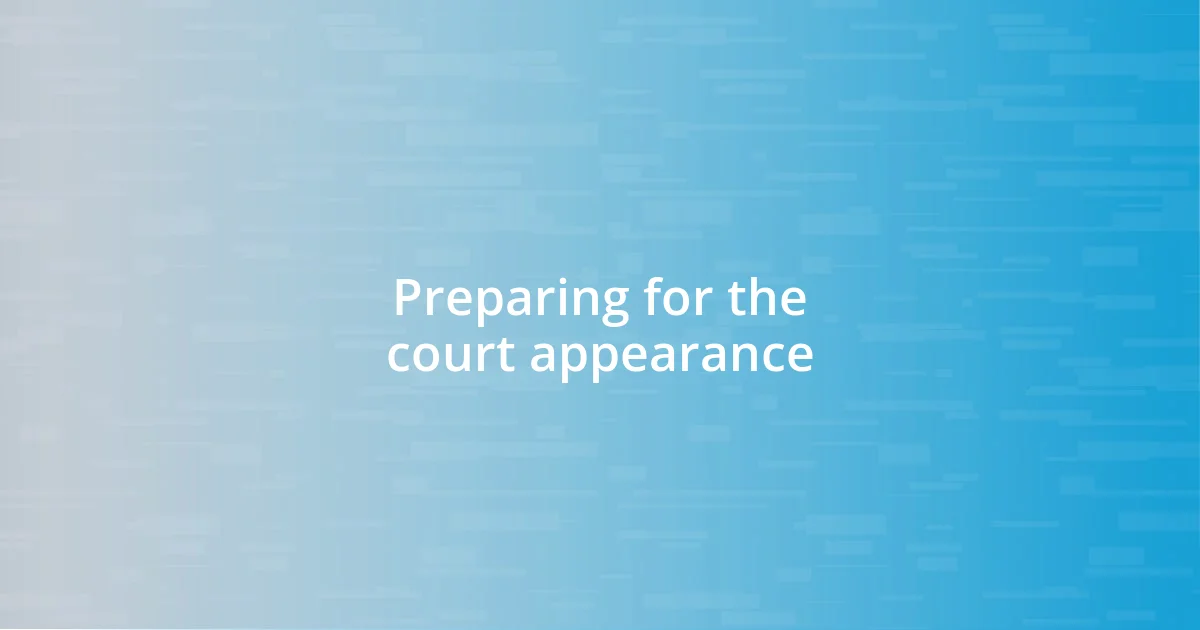
Preparing for the court appearance
Preparing for my court appearance was a blend of excitement and anxiety. I spent evenings reviewing my evidence, memorizing key points, and going over my notes. Did I research enough? Was I confident in my testimony? These questions kept me awake, but I knew I had to prepare thoroughly to face the judge with clarity and conviction.
The day before the hearing, I stood in front of my mirror practicing what I would say. I wanted to ensure that I communicated my side of the story effectively. It was like rehearsing for a performance, and I could feel the weight of the moment pressing down on me. The nerves were real, but I found comfort in the fact that I had invested so much into preparing my case. I remember thinking, “If I can just convey my truth, I have a fighting chance.”
On the morning of the court appearance, I arrived early, dressed appropriately, and took time to breathe deeply. I found strength in the familiar rhythm of my routine; it steadied my racing heart. As I watched others come and go, I wondered about their stories. Preparing wasn’t just about me—it was about standing firm in my truth and being ready for whatever came my way. What I learned was that proper preparation bolstered my confidence, turning jittery anticipation into focused determination.
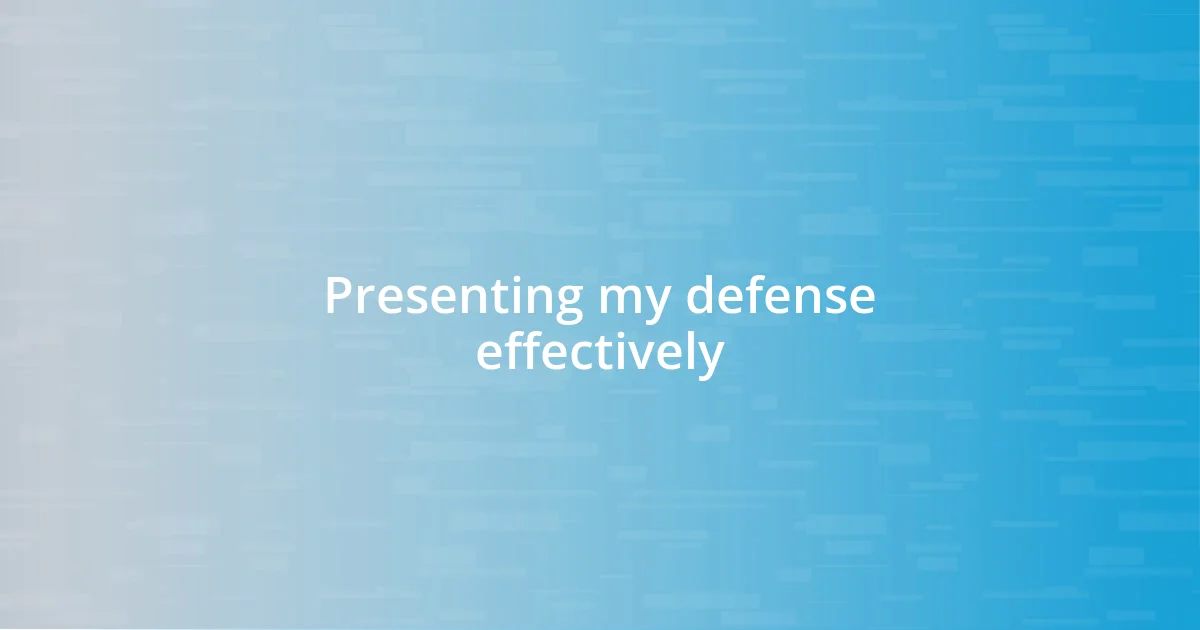
Presenting my defense effectively
Presenting my defense effectively required me to harness both my knowledge and emotions. I vividly recall my first attempt at articulating my side during a practice session with my attorney. My hands trembled as I spoke, and I questioned, “Will the judge understand where I’m coming from?” It was in that moment that I realized the importance of authenticity. I had to express not just the facts but also the feelings behind them.
Throughout the process, I learned that storytelling could be one of the most powerful tools in my defense. Instead of bombarding the judge with dry statistics, I shared my perspective: how the incident affected my life and the implications of a wrongful charge. I remember saying to myself, “If I can connect on a human level, there’s a chance for understanding.” This approach transformed my defense; it became not just about evidence but about my truth and experience.
I also discovered the significance of anticipating counterarguments. In my preparation, I sat down to think, “What might they throw at me?” This led me to refine my narrative and bolster weak points in my case. By being proactive, I felt more prepared and less vulnerable. Each time I faced a tough question in practice, it was like a mini victory, fueling my confidence. Reflecting on these experiences, I recognized that presenting my defense effectively wasn’t just about winning but about standing firm in my narrative and resilience.
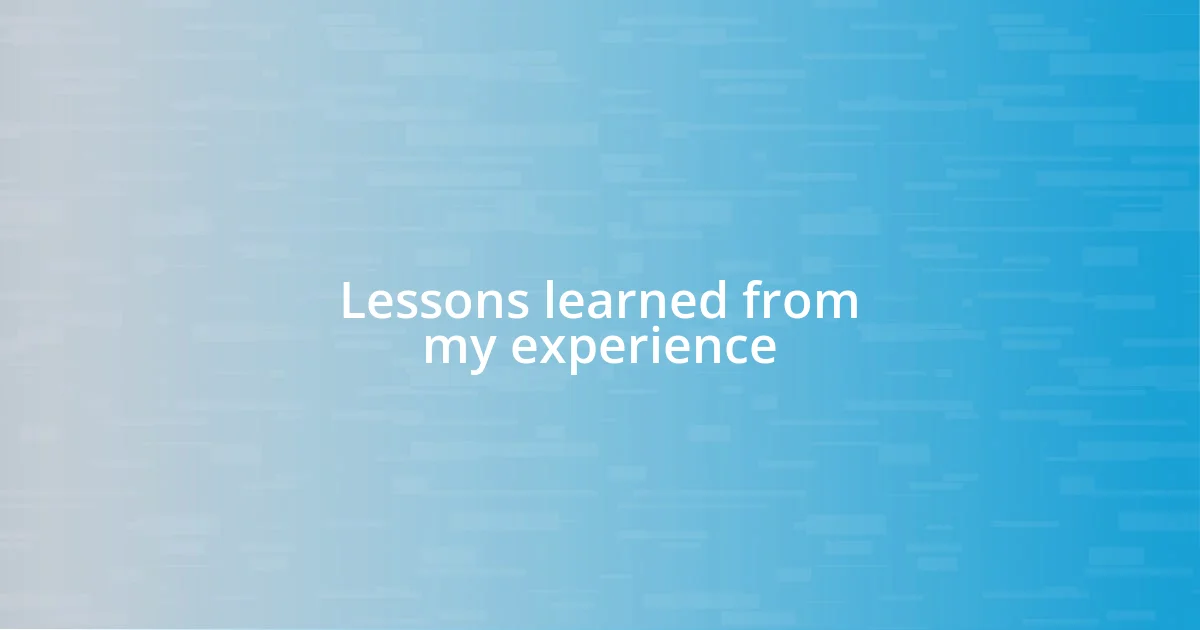
Lessons learned from my experience
When looking back on my journey, the most striking lesson was the power of resilience. There were days when I felt overwhelmed, especially after receiving a negative response from witnesses I had relied on. I often asked myself, “Why am I putting myself through this?” Yet, each setback taught me to dig deeper. I learned that perseverance isn’t about never feeling discouraged; it’s about pushing through despite those feelings.
Another key takeaway was how crucial it is to build a support network. I reached out to friends who had faced similar challenges, not fully understanding their experiences at first. But hearing their stories made me realize I wasn’t alone. I remember feeling a surge of relief when someone said, “You’re more capable than you think.” It was a reminder that it’s okay to seek help and lean on others.
Lastly, this experience crystallized for me the importance of staying organized and focused. I created timelines, jotting down every small victory and setback. Finding clarity in chaos became vital. At times I thought, “What if I lose track of my goals?” Thankfully, my notes served as a compass, guiding me back whenever I felt lost. By reflecting on this journey, I understand that each lesson learned shaped my resolve and perspective.




